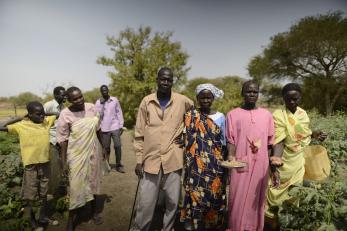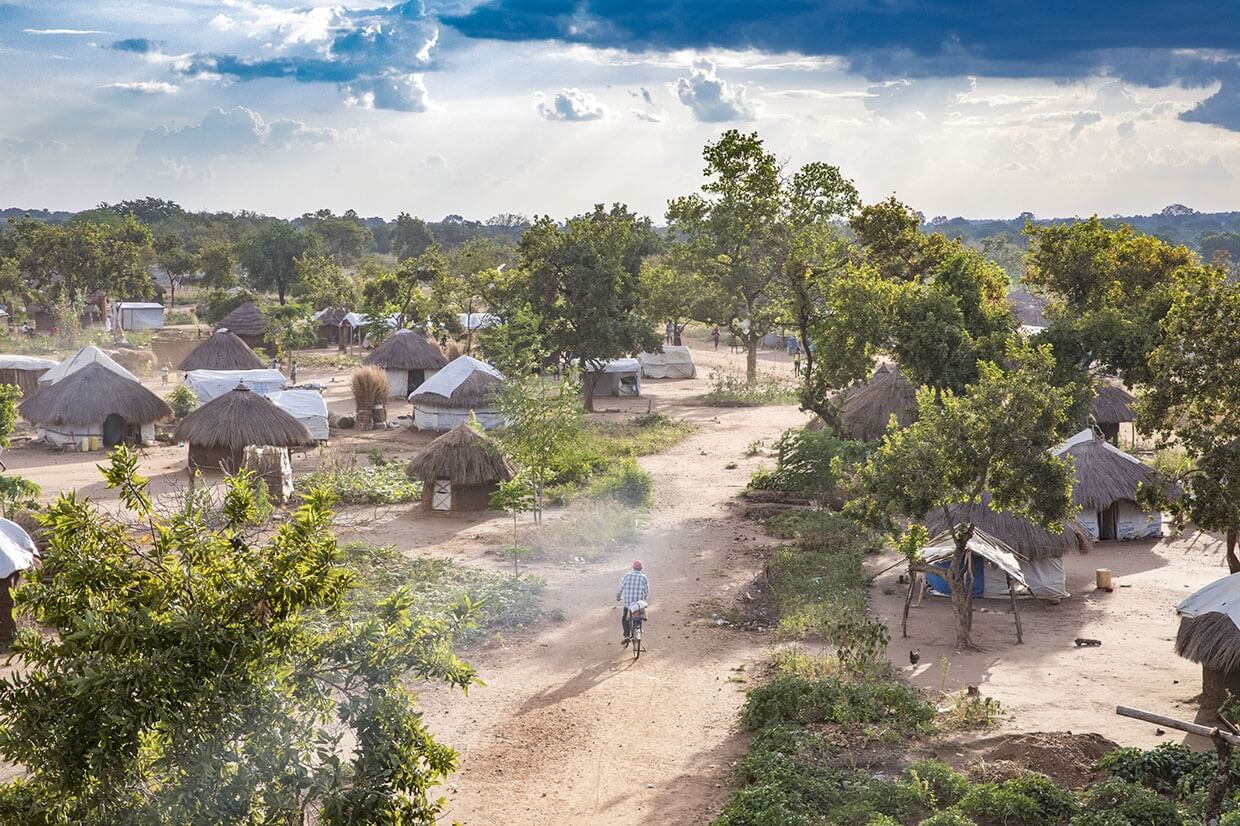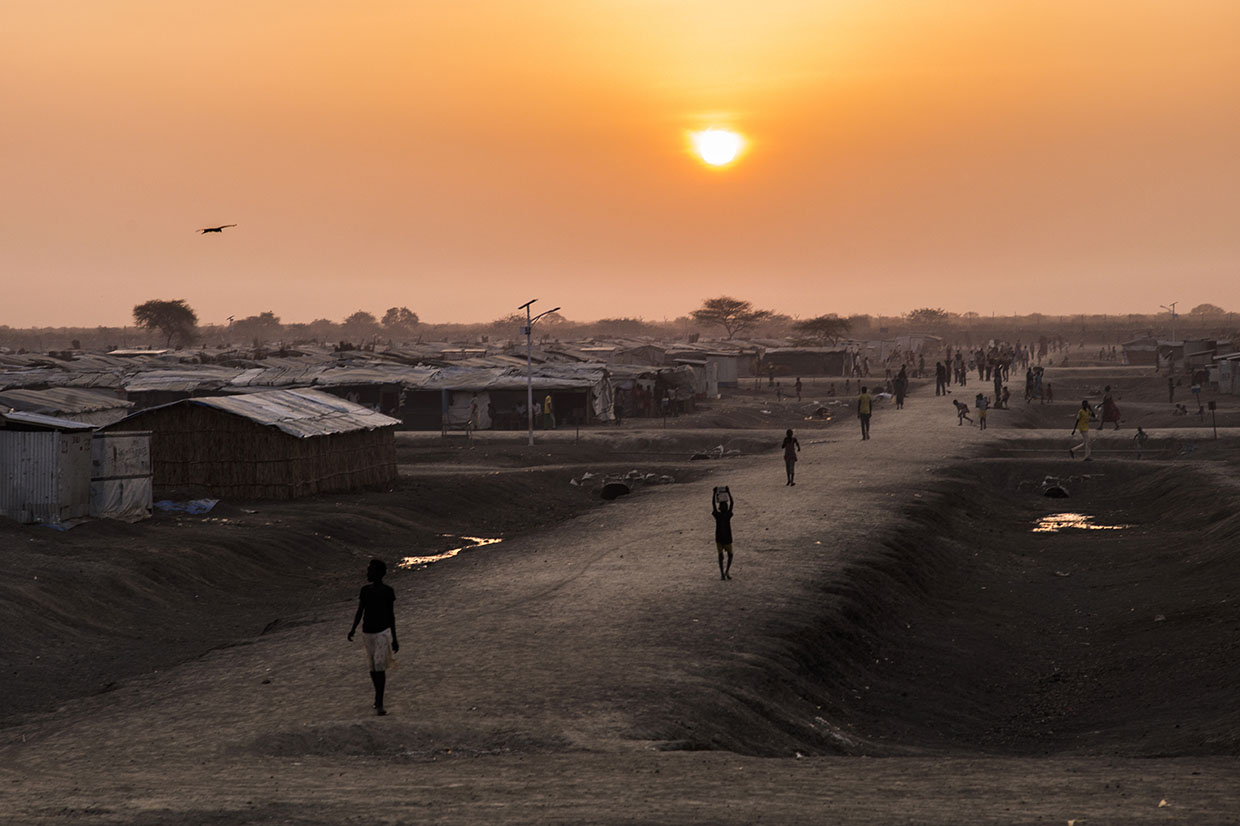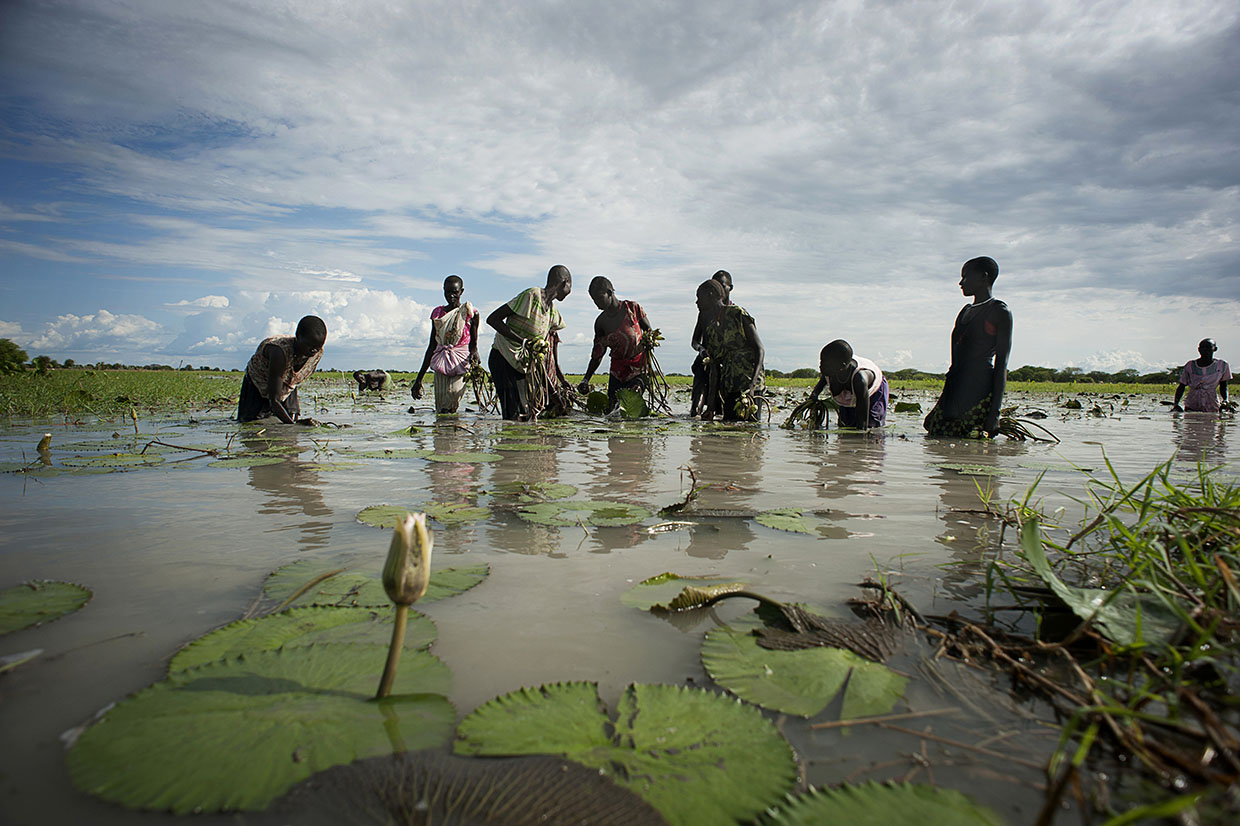The Currency of Connections
Overview
The Currency of Connections is an ongoing research initiative between Mercy Corps and the Feinstein International Center at the Friedman School of Nutrition Science and Policy, at Tufts University with support from the Office of US Foreign Disaster Assistance (OFDA). Our research offers aid actors insights into localized social protection and support systems in South Sudan and the ways in which humanitarian aid can both complement and disrupt these systems. We hope that The Currency of Connections will enable donors and aid actors to design and deliver programs that strengthen existing social support networks and, at the very least, do not undermine them.
Why do social connections matter?
In protracted crises in which formal governance structures are weak to nonexistent, people depend heavily on local systems — both social and economic — to get by, often more than they depend on external aid. Households and economic actors may rely on their friends, neighbors and extended families for food, access to economic opportunities, and negotiation of safe passage when fleeing from conflict. In addition to social support networks, markets have been shown to play a critical role in enabling crisis-affected populations to cope with and recover from conflict, displacement and disasters.
Even throughout prolonged conflict, market activity is often persistent. Strong relationships and trust between individuals help crisis-affected households share knowledge, find income opportunities, borrow money and obtain other resources. It is thus critical that aid actors understand how social connections and markets interact and help conflict-affected populations in South Sudan cope and recover. Research shows that when humanitarian actors fail to understand these existing local coping strategies, they risk inadvertently undermining them.
Resources
- Why Do Social Connections Matter for Households in South Sudan?
- The Role of Social Connectedness Among South Sudanese Refugees in West Nile, Uganda
- The Reconfiguration of Social Connections in Bentiu, South Sudan
- Why Local Support Systems are Integral to Helping People Recover in South Sudan
- Watch our Marketlinks webinar: Why Do Social Connections Matter for Resilience and Recovery?
Why Do Social Connections Matter for Households in South Sudan?

This mixed methods report is final publication from the Currency of Connections series, a research initiative between Mercy Corps and the Feinstein International Center at the Friedman School of Nutrition Science and Policy, at Tufts University with support from the Bureau for Humanitarian Assistance (BHA). The series offers aid actors insights into localized social protection and support systems in South Sudan and Uganda, and highlights the ways in which humanitarian aid can both complement and disrupt these systems. We hope that The Currency of Connections will enable donors and aid actors to design and deliver programs that strengthen existing social support networks and, at the very least, do not undermine them.
The Role of Social Connectedness Among South Sudanese Refugees in West Nile, Uganda

This report examines how South Sudanese refugees in West Nile, Uganda establish and leverage social connections throughout the process of displacement and settlement. The objective of this report is to help humanitarian aid actors understand important and often overlooked sources of household resilience during displacement. This understanding may help humanitarian aid actors design more effective interventions that strengthen existing social connections on which displaced populations rely for support. Equally, this analysis may help humanitarian aid actors avoid inadvertently undermining these important sources household resilience during crises.
The Reconfiguration of Social Connections in Bentiu, South Sudan

In this three-part installment to the Currency of Connections series, we examine the importance of social connectedness for communities inside and immediately adjacent to the Bentiu Protection of Civilians site (PoC).
The Evolution of Pre-displacement Connections in Bentiu, South Sudan examines how social connections have changed in the PoC, and the strategies by which people establish new bonds with neighbors, friends, and those pursuing similar livelihoods. Our analysis sheds light on people’s own strategies of forming, preserving, and shifting their types and sources of social connectedness. Understanding these tactics may help equip aid actors to implement interventions that reinforce existing coping strategies. Our analysis also highlights the need to understand the effects of humanitarian crises at multiple levels of local systems.
The Establishment and Reconfiguration of Informal Livelihood Groups in Bentiu, South Sudan discusses informal livelihood groups as a form of socioeconomic connectedness in the Bentiu PoC. This report explains various livelihood-based strategies that households rely on to cope and adapt during displacement and may help aid actors maximize the effectiveness of their interventions and support key sources of household resilience.
The Impact of Weddings and Rituals on Social Connections in Bentiu, South Sudan examines changes to the nature of marriages in the PoC. We discuss the long-standing importance of marriage as the foundation of kinship networks and related social support systems in South Sudan and examine how the shift from a cattle-based economy to one entailing greater use of cash has affected these life events. Examining weddings and marriages provides a useful lens for identifying the effects of cash on social connectedness, as well as the loss of assets such as cattle on new and existing relationships.
Why Local Support Systems are Integral to Helping People Recover in South Sudan

The purpose of this report is to give aid actors insights into localized social protection and support systems in South Sudan and the ways in which humanitarian aid, including cash transfer programming, can both complement and disrupt these systems. We hope that this report, and others in this series, will enable donors and aid actors to design and deliver programs that strengthen existing social support networks and, at the very least, do not undermine them.